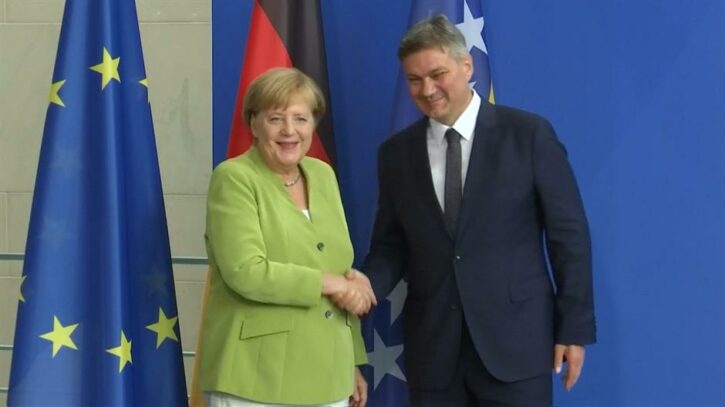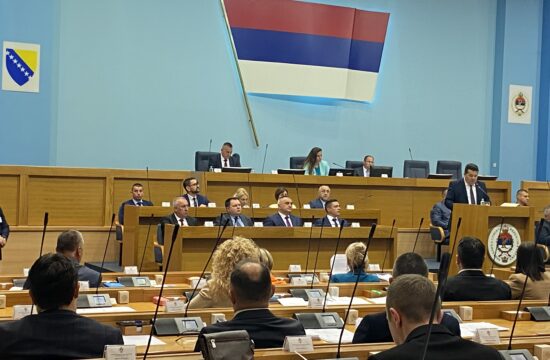
There will be no change in borders in the Western Balkans, German Chancellor Angela Merkel said Monday following a meeting with Chairman of Bosnia and Herzegovina's Council of Ministers Denis Zvizdic.
Zvizdic arrived in Berlin to meet the German chancellor and, as he announced prior to the visit, to discuss economy, peace and stability in the region as well as the issue of migrants.
European perspective for all countries of the Western Balkans still exists, Merkel said addressing a press conference following the meeting.
“We encouraged the government and some responsible persons to hurry with answering of the (European Commission's) Questionnaire. We expect the (NATO) Membership Action Plan for Bosnia and Herzegovina will be activated soon,” she said.
Commenting the law reforms in Bosnia, Merkel said compromise is the key.
“As for the Election Law, it is important that all sides reach a compromise. Changes to the Criminal Procedure Code are even more important, and this is where we have a legal gap. The fight against the corruption, crime and terrorism must be enhanced,” Merkel said.
Regional cooperation is crucial, the German chancellor noted.
“All in all, the cooperation in the Western Balkans has improved. We encourage the leaders of the countries to cooperate as closely as possible,” Merkel said promising assistance for Bosnia to tackle the issue of migrants.

Chairman Zvizdic thanked the German senior official for her personal engagement in terms of European integration of Bosnia and Herzegovina. He recalled that the country's priorities are the EU and NATO integration.
“The most important foreign policy goals of Bosnia and Herzegovina are European integration and the NATO,” Zvizdic said pointing out that “this road has no alternative.” He promised the answers to the Questionnaire would be timely provided so the country could obtain the EU candidate status as soon as possible.
“The Membership Action Plan activation is a strong message for strengthening the security in Bosnia and Herzegovina and the whole region,” Zvizdic said.
All economic parameters are constantly increasing and the country is yet to carry out numerous reforms in order to improve social stability, he added.
The Bosnian official invited German companies to invest in Bosnia, which he said was a country “with good resources and quality labour force.” Germany was one of three most important Bosnia's partners and hopefully it would remain so, he added.




